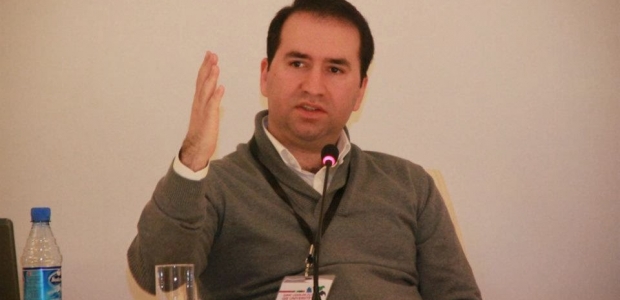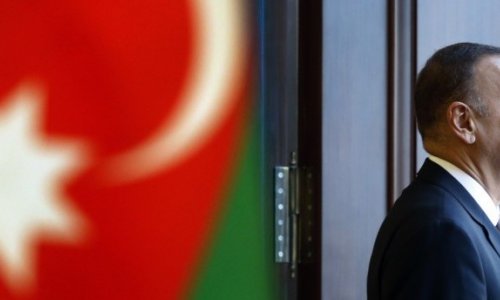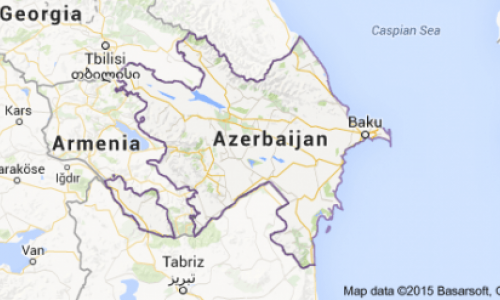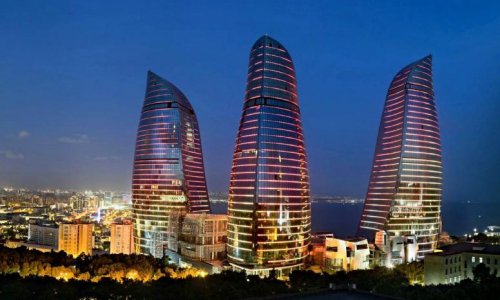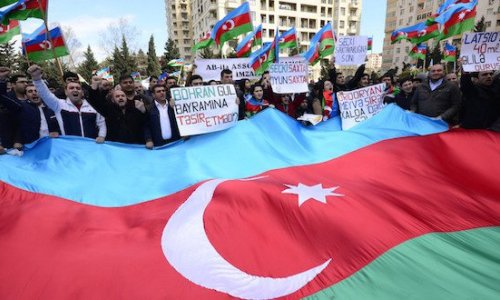By Ceyhun Osmanli, a member of Azerbaijan's parliament
While gaffes of presidential candidates in the US have recently given much room for debate, many remain indifferent to the growing human rights violations against women globally, especially in the Muslim world.
The horrific crimes such as organized rape, sexual assault, enslavement, sale and execution committed by the ISIS against Yazidi women and girls have reached alarming levels. Even in relatively moderate Muslim countries such as Malaysia, women face increasing pressure from the conservative parts of society regarding their vestimentary habits. In India, Muslim women are still severely affected by the triple talaq law, which makes instant oral divorce possible. Meanwhile, the southern Russian republic of Chechnya just witnessed the launch of the first women-only beaches.
Even in EU countries, stark inequalities between the sexes still exist and in spite of legislative progress on gender equality over the past 40 years, for various reasons, there are still substantially fewer women in political leadership and decision-making positions.
Against this background, where a functioning secularism and respect for women rights becomes more and more a rarity, it is not an exaggeration to say that, certainly in comparison to other Muslim countries, Azerbaijan is a beacon of progress in the field of women’s rights.
March 8 is an official holiday in Azerbaijan.
Sometimes men in order to show their care and love for their loved - mothers, sisters or wives - will undertake all household duties - from washing dishes to cooking dinner and looking after the children, so that women can enjoy a full day of rest.
On this day, people show their love and gratefulness to women in many ways.
Originally, the holiday was purely politically motivated. It was not the holiday of spring, love and admiration for beautiful creatures but a day of struggle… women’s struggle for their rights, for equality with men in family and life, as well as equal suffrage.
Women have played an important role in Azerbaijan over the centuries.
It is not a coincidence that Azerbaijan was the first country in the Muslim world to grant women the right of vote, which is the fundamental basis of a democratic society. Only Austria and Australia were ahead of Azerbaijan in terms of voting rights for women.
th century, women rights have been given a priority in national education and endorsed by many Azerbaijani philosophers such as Mirze Shafi Vazeh and Mirze Fatali Akhundov. Similarly, women activists such as Merzieh Davudova, Shaukat Mammadova and Hamida Javanshir were actively involved in the struggle for developing the Azerbaijani culture in the twentieth century. Moreover, Uzun Hasan’s mother Sarah Khatun was one of the first female diplomats in the history of the Islamic world.
In 1998, Azerbaijan established the State Committee for Family, Women and Children Affairs.
Nowadays, women are closely involved in the socio-political, socio-economic, scientific-cultural, and other aspects of life in Azerbaijan.
As of 2014, women accounted for 50.3 percent of the total population of the country, or 4,763,600 people.
Most of all working women in Azerbaijan are involved in the educational sphere.
Women account for 76.2 percent of the total number of teachers in secondary schools, 77.5 percent of the total number of teachers in vocational schools, 47.2 percent of the teachers in higher educational institutions. Also, 64.4 percent of the doctors working in the country are women.
Women also play a major role in the development of science. Some 49.2 percent of PhD candidates and 51.2 percent of all academics are women. Three academic and 11 associate members of the Azerbaijan National Academy of Sciences are women.
The overall percentage of women in public service stands at 28 percent. Some 17 percent of entrepreneurs are also women.
The Azerbaijani government introduced many positive initiatives for women’s rights and gender equality in the span of only a few years.
The initiatives include legal reforms in order to maintain the
gender equality as well as initiatives in order to ensure the active participation of women in socio-economic and political life.
Measures have also been taken to maintain women’s employment and financial independence and to back the fight against early marriages through the implementation of the necessary legal changes and the active involvement of the state institutions, NGOs and religious figures.
The fight against domestic violence has also been addressed through the implementation of the necessary legal changes, shelters and awareness raising campaigns in society. Similar efforts have been made to support the fight to change the mentalities through projects, campaigns and trainings.
I could also point to the appointment of women deputy governors and training future women leaders in the administration of the State as a result of the administrative reform.
It is perhaps worth recounting that hundreds of thousands of Azerbaijani women suffered as a result of Armenia’s aggressive policy; about 300,000 women currently live as refugees and internally displaced persons.
With such experiences still fresh in the memory, the government of Azerbaijan currently puts all necessary measures in place to enhance women’s role in the society.
The activities of first lady of Azerbaijan, President of the Heydar Aliyev Foundation Mehriban Aliyeva, is a role model, not least in encouraging Azerbaijani women to take an active part in state building.
She is a fierce women rights defender. She does a lot of charity work, constructs schools, helps people to get cured in the hospitals and promotes cultural events.
We see the results of such labors with the increasing role of Azerbaijani women in decision-making, parliament and municipalities.
Three shelters for women victims of violence were opened in 2013, 11 regional Family Support Centers carried out important community work such as prevention of early marriage and support for incomplete families and promoting gender equality.
In 2014, seven non-governmental Support Centers were accredited to provide social assistance to domestic violence victims. Azerbaijan is also building an online database of cases of violence against women and improving its data collection and analysis capabilities.
The poverty rate among women had decreased from 49 per cent to 5.9 per cent in 2014 and many measures were taken to improve women’s employment, particularly among rural, refugee and displaced women, and to provide funding sources for women entrepreneurs.
Education is key for women’s empowerment; particularly for rural women, and to that end the Government has tripled the education budget to US$1.5 billion and integrated gender studies courses into college and university curricula.
The Government has also taken concrete measures to challenge stereotypes and encourage women to actively participate in political and public life, particularly in rural areas, working closely with non-governmental organizations to do so and 46 per cent of the members of the leading New Azerbaijan Party are women. Following the 2014 elections, representation of women in municipalities increased from four per cent in 2004 to 35 percent.
Additionally, the Council of State Support to NGOs annually supports 50 projects on gender equality, the fight against human trafficking, forced labor and other projects related to women.
I am a realist and further progress is of course needed in a number of areas but the commitment of the country as well as the women themselves, who are highly active in society, certainly offer positive prospects for the future.
Despite the global economic crises, the continuation of the conflict and violation of ceasefire agreements, which lead to many innocent victims, Azerbaijan will continue to improve the position of women in the country and is ready to overcome every challenge to eliminate all forms of discrimination against women.
Azerbaijan is a modern secular country that protects the rights and freedoms of women and is ready to share its experience in this regard with other countries of the Eastern Partnership.
Follow us !

